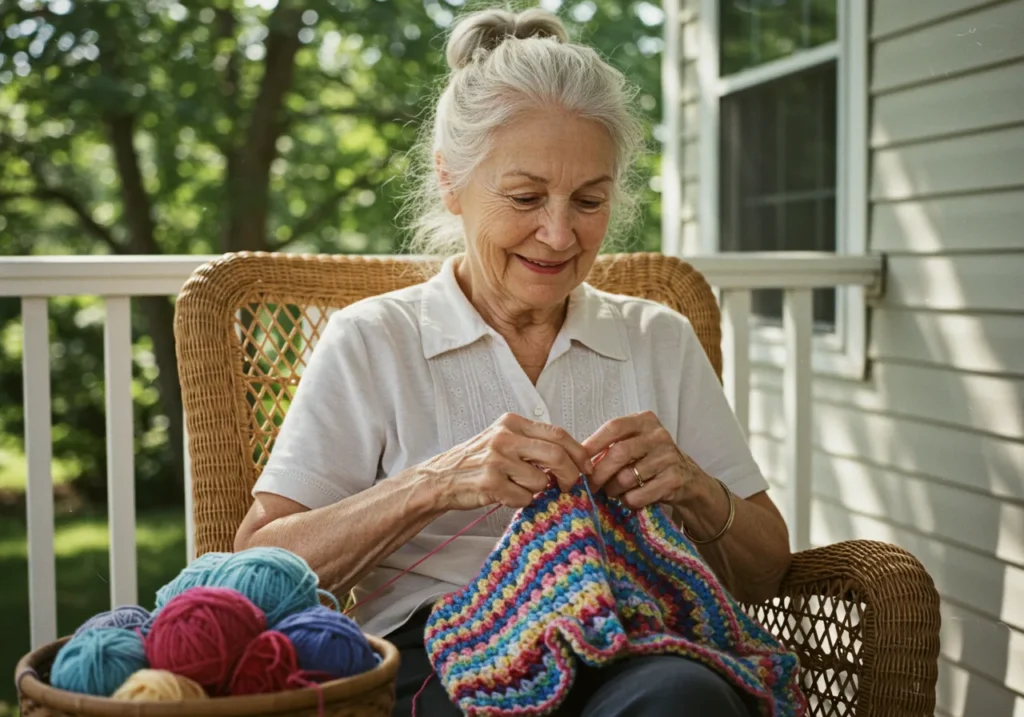Staying Active After 60: 35+ Fun and Fulfilling Ways for Senior Citizens to Stay Engaged
Aging doesn’t mean slowing down—it means shifting gears. Retirement can open the door to a brand-new lifestyle, one that’s more purposeful, joyful, and fulfilling.
According to the National Institute on Aging, staying active—both physically and socially—plays a huge role in preventing chronic diseases, improving mental health, and maintaining independence in older adults. Regular activity can reduce the risk of conditions like arthritis, dementia, depression, and heart disease.
Yet, according to the Centers for Disease Control and Prevention (CDC), only 28-34% of adults aged 65-74 are physically active. That means millions of older adults are missing out on the mental and physical health benefits of staying busy and engaged.
1. Brain-Boosting Activities for Seniors
Staying mentally active is just as important as physical fitness. These activities help improve memory, delay cognitive decline, and keep seniors feeling sharp.
Puzzles and Crosswords
Solving puzzles like Sudoku, word searches, or jigsaw puzzles can keep the brain in tip-top shape.
Example:
- Lumosity App or New York Times Crossword
Lifelong Learning
Many seniors enjoy taking classes just for fun. Websites like Coursera, Khan Academy, and edX offer free or low-cost courses in history, science, art, and more.
Brain Training Apps
- Peak, CogniFit, and Elevate offer brain games specifically designed for older adults.
Journaling and Memoir Writing
Writing about life experiences can be both therapeutic and stimulating. Bonus: it’s a great way to leave a legacy for grandchildren.
2. Physical Activities to Keep the Body Moving
Physical activity reduces the risk of falls, keeps joints flexible, and improves mood.
Walking Groups
Just 30 minutes of walking per day can improve heart health. Joining a walking group adds a social bonus.
Yoga for Seniors
Chair yoga or gentle yoga improves balance, flexibility, and reduces anxiety.
Try:
- Yoga with Adriene (YouTube)
- SilverSneakers classes
Dancing
Ballroom, line dancing, or even Zumba Gold classes are fun ways to stay active.
Cycling or Stationary Bikes
Low-impact and joint-friendly, cycling is a perfect cardio workout.
Swimming & Water Aerobics
Great for seniors with arthritis or mobility challenges.
3. Social Activities to Stay Connected
Loneliness can be as dangerous to health as smoking 15 cigarettes a day, according to Harvard Health.
Join a Club
- Book clubs, gardening clubs, or crafting circles offer regular meetups with like-minded peers.
Attend Community Events
Senior centers, churches, and libraries often host dances, trivia nights, or guest speakers.
Virtual Meetups
Use Zoom or Google Meet to chat with friends or attend online events.
Volunteer
Helping others boosts self-esteem and gives purpose. Try local food banks, animal shelters, or reading to kids at schools.
Travel Groups for Seniors
Look for travel clubs like Road Scholar or ElderTreks, which cater to older adults.
More Opportunities: California Lifeline Program
4. Creative Hobbies to Spark Joy
Creative expression keeps the spirit young and the brain active.
Painting and Drawing
Great for expressing emotions and relaxing.
Photography
Even with a smartphone, seniors can explore photo walks or online galleries.
Knitting, Crocheting & Quilting
Hand crafts are relaxing and often turned into charitable projects (like making blankets for hospitals).

Acting or Storytelling
Local theaters often welcome senior actors or narrators for storytelling events.
Baking and Cooking
Experimenting with new recipes can be both creative and nourishing.
5. Tech-Savvy Activities for Modern Seniors
More seniors are online than ever before—73% of Americans aged 65+ use the internet, according to Pew Research.
Learn Social Media
Staying in touch with family on Facebook or Instagram keeps loved ones close.
Start a Blog or YouTube Channel
Share life stories, recipes, or opinions with the world.
Play Video Games
Yes, really! Games like Wii Bowling or puzzle games can improve reaction time and coordination.
6. Nature and Outdoor Fun
Getting outside boosts vitamin D, lowers stress, and improves mood.
Gardening
Both relaxing and rewarding—plus, growing your own herbs is cost-effective.
Bird Watching
A pair of binoculars and a notebook is all you need.
Picnics in the Park
Invite a few friends or family members for some sunshine and sandwiches.
7. Home-Based Activities for Less Mobile Seniors
For those who prefer or need to stay home, there are still plenty of engaging options.
Audiobooks & Podcasts
Apps like Audible, Spotify, or Google Podcasts are full of free and paid content.
Board Games or Card Games
Great with a caregiver, friend, or grandchild.
Singing and Karaoke
Music can lift spirits and spark old memories.
8. Mindfulness & Mental Wellness
Mental wellness deserves attention, too.
Meditation
Apps like Headspace or Calm are senior-friendly.
Prayer or Spiritual Practice
Many find peace through daily prayer, religious study, or spiritual reflection.
9. Building a Healthy Routine
It’s not just what you do—it’s how consistently you do it.
Tips for Creating a Routine:
- Set a wake-up and sleep schedule
- Plan 1 physical activity per day
- Schedule social time or calls
- Keep a “hobby block” each week
Final Thought
There’s no age limit on joy, movement, or growth. Whether it’s picking up watercolor painting at 65 or learning Spanish at 85, staying active helps seniors lead richer, healthier lives. The trick? Find what sparks your interest and make it a regular part of your week.
Don’t just pass the time—own it. The golden years can be some of the most vibrant, rewarding years of your life.
FAQs
What are the best physical activities for seniors over 70?
Walking, chair yoga, water aerobics, and tai chi are gentle yet effective.
How can seniors stay mentally active at home?
Reading, puzzles, online learning, and writing journals are excellent ways.
Are there any free classes for seniors?
Yes! SilverSneakers, local libraries, and websites like Coursera offer many free options.
What hobbies help with memory loss?
Painting, storytelling, puzzles, and music therapy are great for memory engagement.











